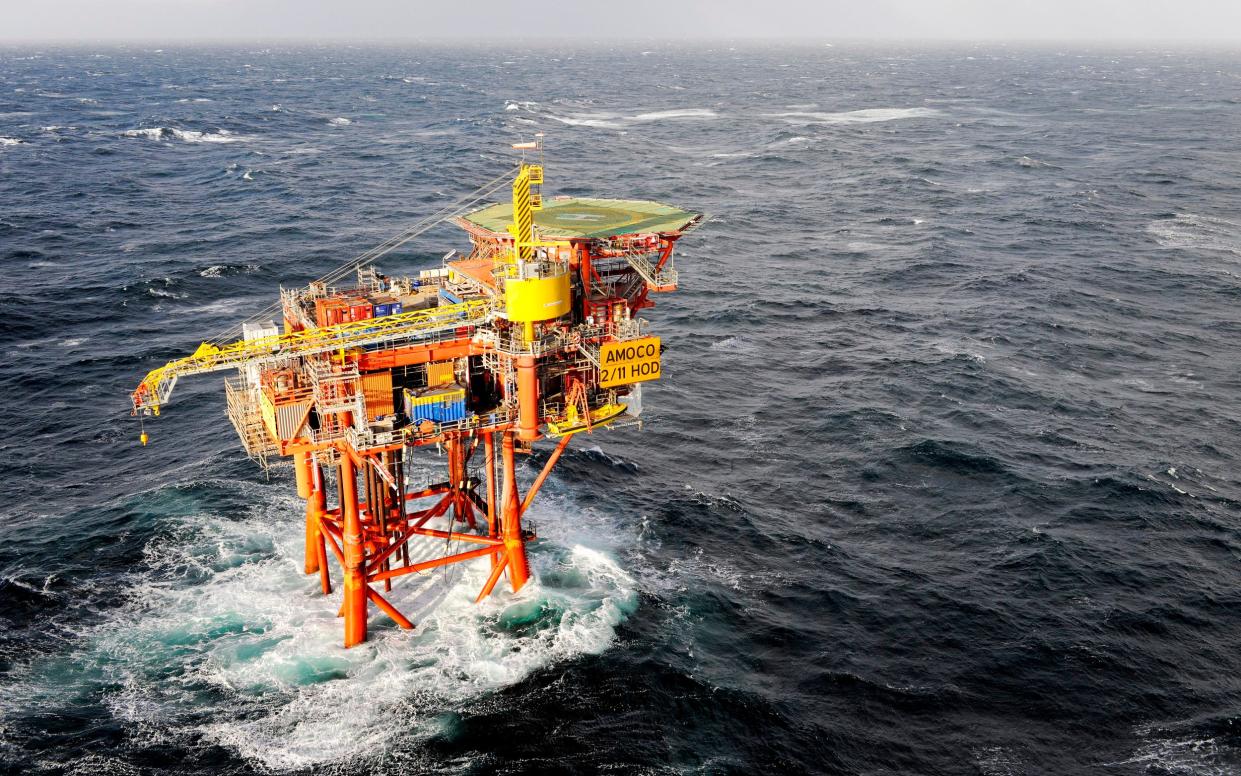Oil and gas investment needed for another 30 years, BP warns

Investment in oil and gas production will be needed for the next three decades if the world is to avoid more shortages and price swings, BP has warned.
The oil giant said in its annual energy outlook published on Monday that fossil fuels are still likely to account for about 20pc of primary energy in 2050 even under a significant tightening of climate policies.
Spencer Dale, chief economist at BP, said investment in new wells would therefore be needed until 2050 to ensure supply of fossil fuels matches demand.
“Natural declines in existing production sources mean there needs to be continuing upstream investment in oil and natural gas over the next 30 years,” he wrote in the report.
The assessment is likely to spark backlash from climate groups and campaigners who argue that investment should be immediately stopped in order to meet net zero goals.
Greta Thunberg told world leaders at Davos earlier this month that new extraction should be stopped immediately, while UN chief António Guterres said last June: “New funding for fossil fuels is delusional.” The International Energy Agency said in 2021 that no new oil, gas or coal projects should be approved if the world was to stay on track to meet a goal of net zero emissions by 2050.
However, BP said continued supply of oil and gas was needed to prevent a repeat of the kind of disruption seen last year when Russian oil and gas supplies were drastically cut back following the invasion of Ukraine.
Mr Dale said: “The scale of the economic and social disruptions over the past year associated with the loss of just a fraction of the world’s fossil fuels has also highlighted the need for the transition away from hydrocarbons to be orderly, such that the demand for hydrocarbons falls in line with available supplies, avoiding future periods of energy shortages and higher prices.”
While demand for oil and gas is expected to fall sharply as a result of efforts to cut carbon emissions, the fuels will still play a major role in the energy system, BP predicts.
The company expects oil demand to plateau over the next decade, before starting to fall, driven by the switch to electric cars.
However, BP envisages fossil fuels would still account for about 20pc of primary energy in 2050 even under a significant tightening of climate policies to cut carbon emissions 95pc by 2050.
Mr Dale said: “Global energy policies and discussions in recent years have been focused on the importance of decarbonizing the energy system and the transition to net zero.
“The events of the past year have served as a reminder to us all that this transition also needs to take account of the security and affordability of energy.”
The warning comes as investors increasingly turn their backs on fossil fuels, with close to $40 trillion in global capital committed to divesting from fossil fuel companies.
BP looked at three possible scenarios for the evolution of the global energy system in its report. Under its “new momentum” scenario, which best reflects the current trajectory, fossil fuels account for 55pc of primary energy in 2050, compared to about 80pc in 2019.
“The total consumption of fossil fuels declines in all three scenarios over the outlook,” it says. “This would be the first time in modern history that there has been a sustained fall in the demand for any fossil fuel.”
Opec’s share of global oil production is expected to rise sharply after 2030 to almost two-thirds by 2050, albeit in a much smaller market, an important geopolitical shift.
The cartel of oil-producing countries, led by Saudi Arabia, is seen as cutting its output over the next decade to avoid pushing prices down too far.
BP is one of the world’s largest oil and gas producers, producing about more than million barrels of oil equivalent per day in 2021. The annual energy outlook is a key industry resource.
Under chief executive Bernard Looney, it has pledged to shift towards renewable energy and has said it expects to cut its oil and gas output by about 40pc by 2030.
Mr Dale says the rise in emissions and frequency of extreme weather events “highlight more clearly than ever the importance of a decisive shift towards a net-zero future”.

 Yahoo Movies
Yahoo Movies 
